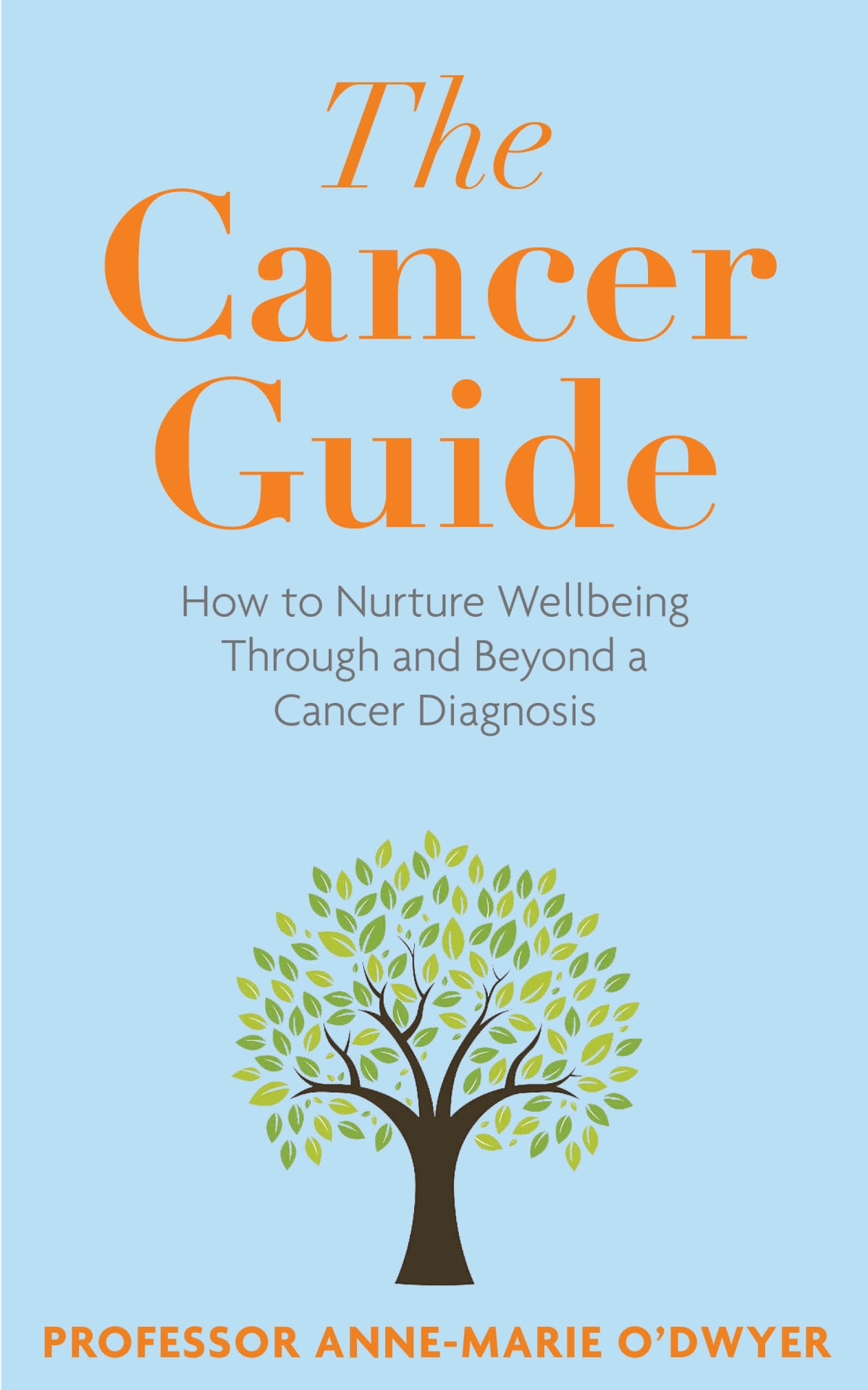Between the Lines: Anne-Marie O'Dwyer
 When did you first come up with the idea for the book?
When did you first come up with the idea for the book?
I have been thinking about writing this book for some time, mainly in response to people who were struggling with a cancer diagnosis who attended me. They would frequently say to me, “If only I had known...” or, even more directly, “Please make sure to tell others or let others know.” So that writing a book seemed a good mechanism for doing this.
Did you start out with the intention of writing a book about a particular topic, or did a book begin to make sense as you were researching?
This book is very much rooted in my experience as a Clinical Professor at TCD/Honorary Consultant Psychiatrist at St James’ Hospital, looking after patients with cancer, and so is focused on psychological aspects of cancer care.
What are the book’s main ideas?
The main theme is – ‘Knowledge is Power’ – with the caveat that it must be appropriate, informed and “correct” information for that topic. People struggling with a cancer diagnosis are often bombarded with well-meaning but often unhelpful information, advice, suggestions or “myths” about cancer. This is particularly the case when planning for their treatment and recovery.
What did writing a book allow you to do that wouldn’t have been possible in another medium eg. journal article?
Writing a book, particularly a book aimed at patients and their families, allowed me to use a tone and language that would be accessible to everyone. In particular, it allowed me to use (anonymised) patient stories. In my opinion, stories are a very powerful (human) method to relay information.
How did you decide which publisher to place the book with?
I was very fortunate to have an excellent agent at AM Health who was very helpful in liaising with publishers.
How long did it take to write?
That is a question that requires several answers! The book is the product of almost 40 years of clinical experience, and a result of reflection, listening and understanding information accumulated over that time. The writing of the stories and narrative took about a year, but the structuring and editing of that narrative probably took a further two years.
Did you ever experience any moments of writer’s block? What did you do to overcome this?
My main experience of “block” was not really with respect to the content, as the content reflected my clinical experience, but more related to trying to work out a structure that made sense and was coherent. Whenever I got stuck, I would set the draft aside, go for a long walk on a deserted beach with my dog, sometimes several walks! And try to think it through. This usually worked!
What advice would you give someone thinking about writing a book?
As this is only my second book (and my first was a textbook), I am a little uncomfortable about dispensing advice. What has worked for me, however, has been:
· Having a passion and interest for the topic/topics about which I am writing.
· Thinking about the audience for which I am writing: my first was a textbook for medical students and trainee doctors, my second a text aimed at the general public – so different styles were required.
· Spending time thinking about the overall structure, how it will flow, connect and be internally consistent.
If you could go back in time and give yourself one piece of advice before you started writing, what would that be?
Realise that it will take a very long time, and the date of publishing, while to be celebrated, is the start of the date of “supporting” the book, ensuring that the message will get out there. Also recognising that in the “modern” era, and online presence/connection is, effectively, essential.
Anne-Marie O’Dwyer
Professor Anne-Marie O’Dwyer is a clinical professor and psychiatrist with almost four decades of clinical experience. Her responsibilities have included training medical students in psychiatry as well as providing teaching for post-graduate students in courses such as Translational Oncology. She studied medicine at TCD and, after qualifying as a doctor, initially trained in hospital medicine at the Trinity Federated Voluntary Hospitals scheme in Ireland, becoming a Member, later a Fellow, of the Royal College of Physicians of Ireland. She subsequently moved to train in psychiatry in Ireland at St Patrick’s University Hospital and in the UK at the Maudsley Hospital, London, the Institute of Psychiatry, London and Addenbrooke’s Hospital, Cambridge. She gained a diploma in Cognitive-Behaviour Therapy from the Institute of Psychiatry, London, and Membership of the Royal College of Psychiatrists, UK.
She was appointed to consultant psychiatrist posts at the Maudsley Hospital and St James’s Hospital, Dublin, in 2000. In 2004, with colleagues, she founded the first dedicated Psycho-Oncology service in Ireland, creating a blueprint for psycho-oncology services nationally (National Cancer Strategy, Ireland 2017). In 2002, she helped to establish the Liaison Psychiatry Section, Irish Division, of the Royal College of Psychiatrists, serving as honorary secretary until 2007. She was also a member of the Post-Graduate Training Committee (Examinations Sub-committee of the Irish College of Psychiatrists). In 2017, she returned to study for a Masters in Education at TCD.

